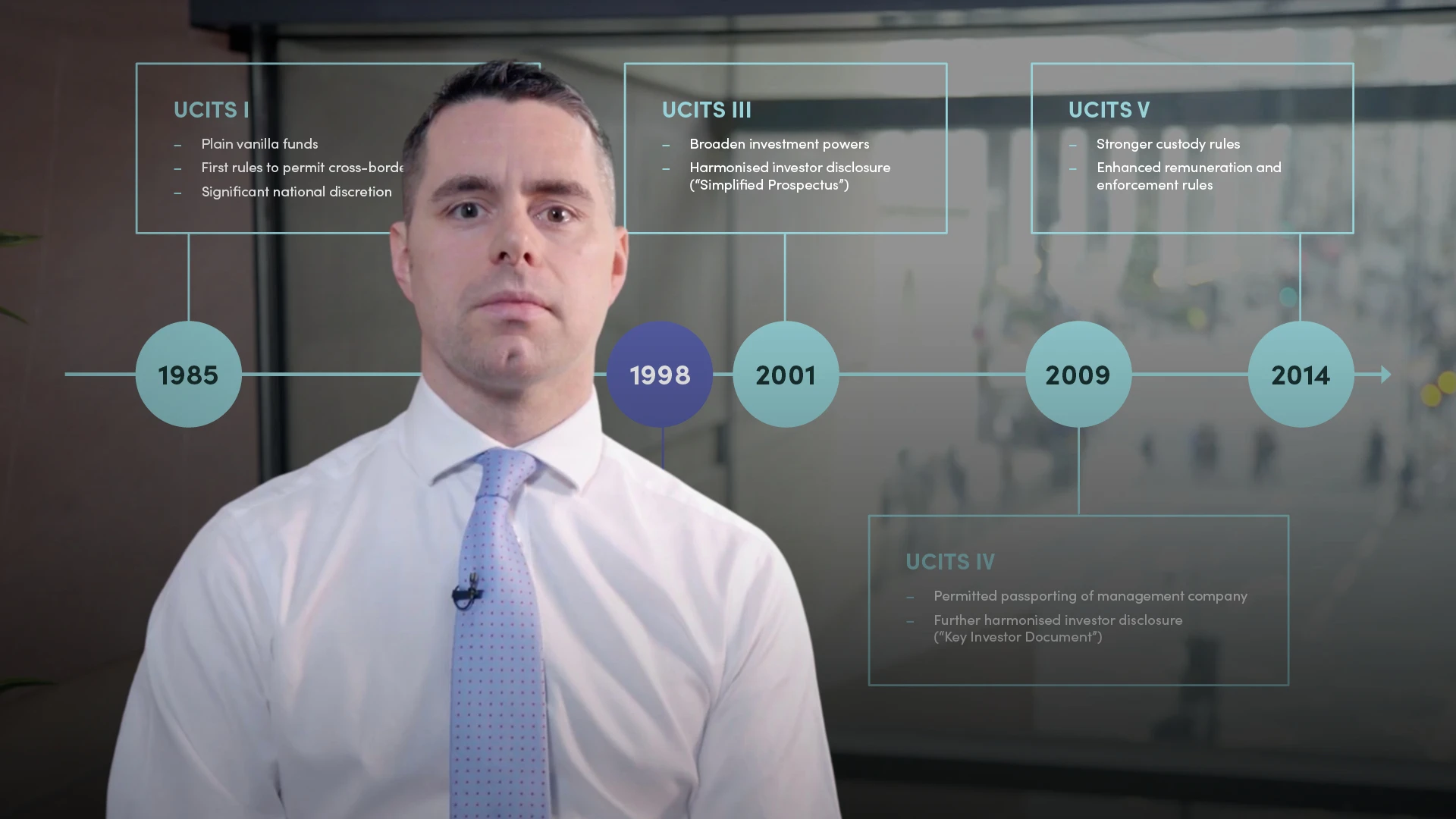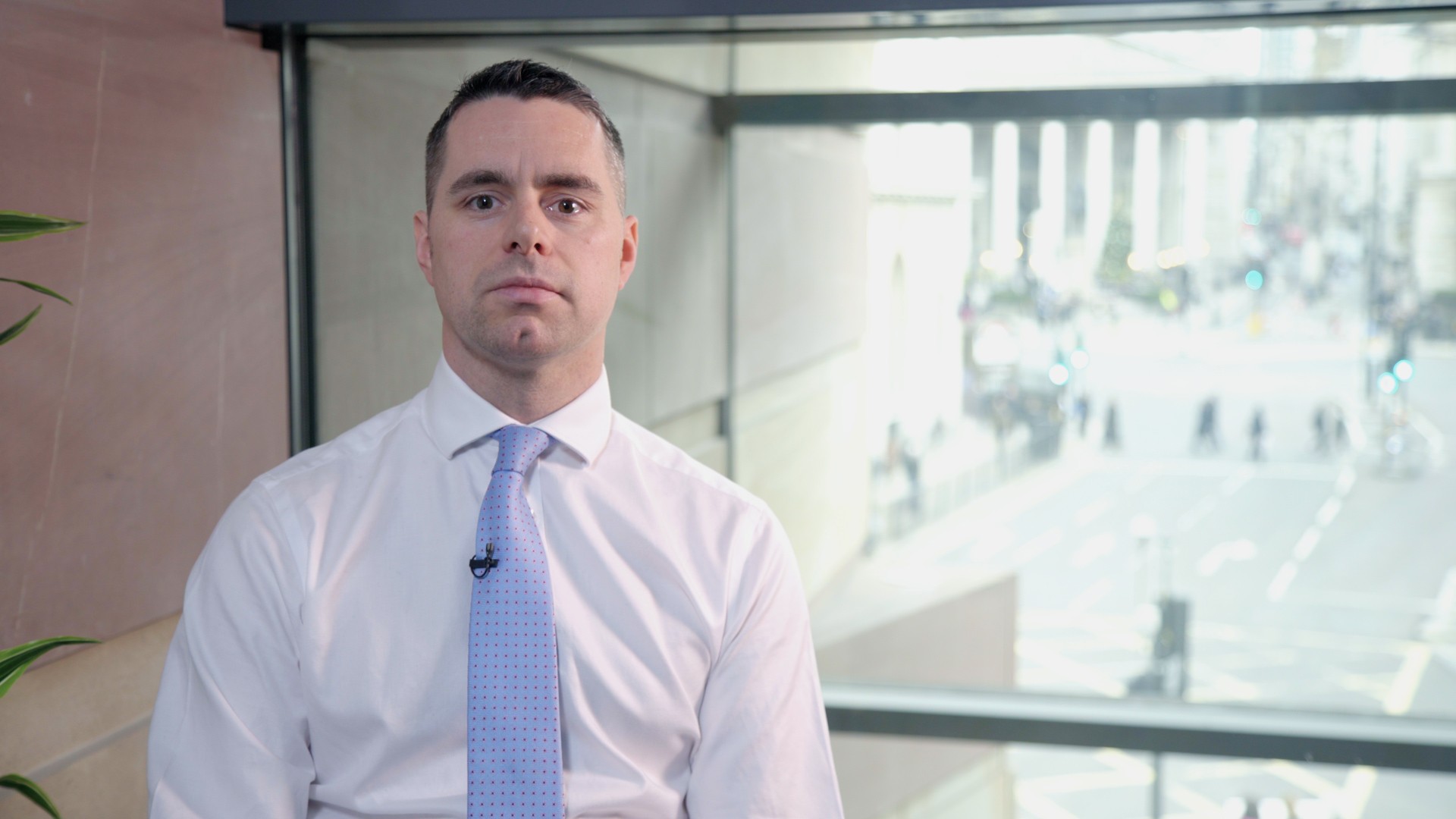
EU Alternative Investment Fund Managers Directive (AIFMD)

Giles Swan
15 years: Asset management
Here Giles discusses the AIFM Directive. He outlines which funds are regulated by the AIFMD and the different rules the AIFMD implements.
Here Giles discusses the AIFM Directive. He outlines which funds are regulated by the AIFMD and the different rules the AIFMD implements.
Subscribe to watch
Access this and all of the content on our platform by signing up for a 7-day free trial.

EU Alternative Investment Fund Managers Directive (AIFMD)
11 mins 30 secs
The AIFM Directive was part of the EU’s post financial crisis legislation and covers hedge funds, private equity funds, and other funds not covered by the UCITS Directive. Its objective is to address the financial stability concern arising from the activities of AIRM and enhance investor protection.
Key learning objectives:
What are the rules?
Identify what the future hold
Explain AIFM Directive and the rules it implements
Subscribe to watch
Access this and all of the content on our platform by signing up for a 7-day free trial.
What types of funds are regulated by the AIFM Directive?
- Hedge funds, Private Equity funds, Venture Capital funds and real estate
- Various specialist regulations. For example, EuVECA, EuSEF and EuLTIF
- De minimis rules for smaller managers with either EUR100mn or for EUR 500mn
Which aspects does the AIFM Directive cover?
- Directive regulates managers of AIF, but also covers marketing and other aspects
- Key element of provisions concern depositaries, including safekeeping and custody liability
What are the rules for AIFS that are marketed into the EU?
- Depends on the location of the fund (i.e. its domicile) and the location of the fund manager
- Aspects of a fund’s portfolio may be delegated to other firms/advisers
- All or some of the management, marketing and depositary rules may apply in full or part
What are the rules for funds and managers in the EU?
- Management - Organisational rules, conflict of interest management, delegation rules, capital requirements, valuation, risk and liquidity management
- Marketing - Point of investment disclosures and annual investor reports
- Depositary - safekeeping, custody, cash management and oversight
What are the requirements for authorisation?
- Capital Resources
- Initial and ongoing own fund requirements
- Cover for potential professional liability
- AIFM
- Whether AIF is internally or externally managed
- Regulatory authorisation application
- Licensing
- Internal AIF restriction on other licensed activities
- External AIFMs
- Can undertake additional management of UCITS
- Can apply for authorisation to provide third party portfolio management and non-core services
- AIF
- Regulatory authorisation application including information on investment strategy, fund types and depositary arrangements
What are the organisational and operating rules for AIFMs?
- General Principles - general operating conditions for conduct and towards investors, appropriate human and technical resources, sound procedures and controls
- Staff Remuneration - remuneration policies and practices for certain staff, disclosures of amounts of remuneration in annual reports
- Conflicts of Interest - identification and management of conflicts of interest, disclosure requirements, including prime broker collateral arrangements
- Depositary - appointment of a single depositary, rules for contract, liability, safekeeping functions and delegation
- Delegation - limitations, requirements and conditions for third party delegation, specific conditions for the delegation of risk management and portfolio management
What are the management rules for AIFMs?
- Risk Management
- Separation of risk management
- Systems to identify and manage risk
- Annual review
- Liquidity Management
- Appropriate liquidity management system employed by AIFM
- Procedures to monitor liquidity risk
- Stress tests of normal and exceptional liquidity conditions
- AIFM required to ensure investment strategy, the liquidity profile and the redemption policy of AIF are consistent
- Investor Transparency
- Annual report provided
- Investor disclosures made available before subscription
- Regulatory reporting
- Regulator reporting of data to local regulator by AIF
What are the investment rules for AIFMs?
- Leverage
- Maximum level of leverage which may be employed set by AIFM
- Reporting of leverage by AIFM to local regulator, including counterparty information if the substantial level is employed
- Regulatory power to set leverage limits
- Securitisations - 5% skin in the game requirement
- Private Equity
- Conditions for AIF control of non-listed companies and issuers
- Publication and regulatory notification of control by AIFM
- Disclosures of control by AIFM in annual reports
- Asset stripping rules for 24 months after control is acquired
What are the rules for marketing of AIF?
- Dependant on whether AIF and AIFM is in the EU or outside
- EU AIF and EU AIFM
- Marketing passport for professional investor
- Retail investor marketing subject to national rules
- Non-EU AIF
- Marketing subject to national rules
- Future marketing passport for non-EU AIF and AIFM may be made available by the European Commission
- Ability to market non-EU AIF under national rules may be terminated
What are the rules for funds and managers outside the EU?
- Ability to manage non-EU AIF from the EU subject to full directive requirements but only partial ‘depositary light’ regime
- Marketing of non-EU funds via national private placement with partial applicable of some management rules,including disclosures and reporting, and marketing requirement
What are the rules for marketing non-EU funds into the EU?
- Via national private placement
- AIFMD + national rules
- Not every MS permits
What does the future hold for the AIFM Directive?
- Implementation and legislative developments:
- Updated ESMA guidance and Q&A on AIFMD
- EU cross-border distribution package amends AIFMD rules
- AIFMD review:
- European Commission undertaking a review of AIFMD
- Study commissioned to examine effectiveness and competitiveness
- Delegated acts on non-EU marketing passport:
- ESMA advice and opinion on non-EU AIF marketing passport
- European Commission can adopt delegated acts to activate their passport
- European Commission can adopt delegated acts to terminate national marketing
Will the third country marketing passport be activated?
The 2016 ESMA assessment - recommending extension of passport to 12 non-EU countries.Subscribe to watch
Access this and all of the content on our platform by signing up for a 7-day free trial.

Giles Swan
There are no available videos from "Giles Swan"






















